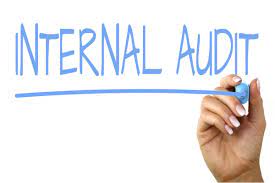The Objective and General Principles of External Audit Engagements
Introduction
External audit engagements play a vital role in the financial landscape, providing credibility and confidence in financial statements. The objective and general principles of these engagements are foundational to their effectiveness and the trust they engender among stakeholders. This article explores these objectives and principles in detail.
Objective of External Audit Engagements
Primary Objective:
The primary objective of an external audit is to provide an independent opinion on whether an organization’s financial statements are presented fairly, in all material respects, in accordance with the applicable financial reporting framework. This involves assessing whether the financial statements provide a true and fair view of the company’s financial performance and position.
Enhancing Trust:
By achieving this objective, external audits enhance the degree of confidence of intended users in the financial statements. This trust is crucial for investors, creditors, and other stakeholders who rely on these financial statements for making informed decisions.
General Principles of External Audit Engagements
Integrity and Objectivity:
Auditors must maintain integrity and objectivity throughout the audit process. This means being honest and straightforward in their professional relationships and not allowing bias, conflict of interest, or undue influence of others to compromise their professional judgment.
Professional Competence and Due Care:
Auditors are expected to possess the necessary knowledge, skills, and abilities to perform the audit. They must continually update their skills and knowledge to ensure that they can carry out their work with competence and due care.
Confidentiality:
Auditors are bound by the principle of confidentiality, which requires them not to disclose information acquired during the course of the audit to third parties without proper authority, except where legally obligated to do so.
Independence:
Independence in both fact and appearance is crucial for auditors. This requires them to avoid situations that might lead to bias or conflict of interest, ensuring that the audit opinion is unbiased and impartial.
Professional Skepticism and Judgment:
Auditors should apply professional skepticism, which involves a questioning mind and a critical assessment of audit evidence. They should also exercise professional judgment throughout the planning and performance of the audit.
Audit Evidence:
A sufficient and appropriate collection of audit evidence is essential. This involves obtaining enough evidence to draw reasonable conclusions on which to base the audit opinion.
Audit Risk and Materiality:
Understanding and applying the concepts of audit risk and materiality are central to the audit process. Auditors must assess what is material and focus on areas where there is a higher risk of material misstatement.
Documentation:
Proper documentation of all stages of the audit process is a fundamental principle. This documentation provides a record of the basis for the auditor’s conclusion and ensures that the audit was conducted in accordance with the standards.
Compliance with Standards:
Auditors must conduct audits in accordance with the relevant auditing standards. These standards provide a framework for the audit process and ensure consistency and quality of the audits.
Reporting:
The final stage involves preparing an audit report that provides an opinion on the financial statements. This report should be clear, concise, and include all necessary information to understand the auditor’s conclusions.
Conclusion
The objective and general principles of external audit engagements are designed to ensure that these engagements are carried out with integrity, objectivity, and professionalism. By adhering to these principles, auditors play a crucial role in maintaining the health and transparency of financial reporting, which is essential for the functioning of capital markets and the overall economy. The ongoing challenge for the auditing profession is to adapt these principles to an evolving business landscape, incorporating technological advancements and responding to emerging risks and stakeholder expectations.
